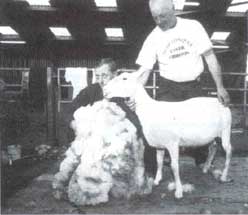Healthy ageing of cloned sheep
<p>The health of cloned animals generated by somatic-cell nuclear transfer (SCNT) has been of concern since its inception; however, there are no detailed assessments of late-onset, non-communicable diseases.
<p>The health of cloned animals generated by somatic-cell nuclear transfer (SCNT) has been of concern since its inception; however, there are no detailed assessments of late-onset, non-communicable diseases.

Breakthroughs in genetic engineering have led to questions on the ethics of such experiments. Should scientists alone be steering the decision making process?

Science is probably going to ensure that people will be cloned eventually as was Dolly, the sheep?
two scientists in the us have questioned the credibility of Dolly. They say that the experiment must be repeated before its results are accepted. No other scientist has reported cloning a
19 European nations sign an agreement to prohibit the genetic replication of human beings

EUROPEAN leaders after a recently held two-day summit at the Council of Europe in Strasbourg have pledged to ban human cloning as part of measures to prevent the abuse of technology. The Council

TWENTY European countries recently signed a treaty which effectively bans human cloning. They signed the first international convention to control research into human genetic engineering and
to say that science and technology is progressing at lightning speed is an understatement. What, however, needs to be questioned is whether it is moving in the right direction or not. Since reports

The possibility of human cloning after a sheep has been cloned recently, seem hardly welcome as critics raise questions about humankind's propensity to breach ethics by abusing powerful technologies
The Edinburgh event has been followed by one more 'successful' cloning incident. Barely a week after the world said hello to Dolly, a group of scientists in Oregon, US, claimed, albeit unofficially,